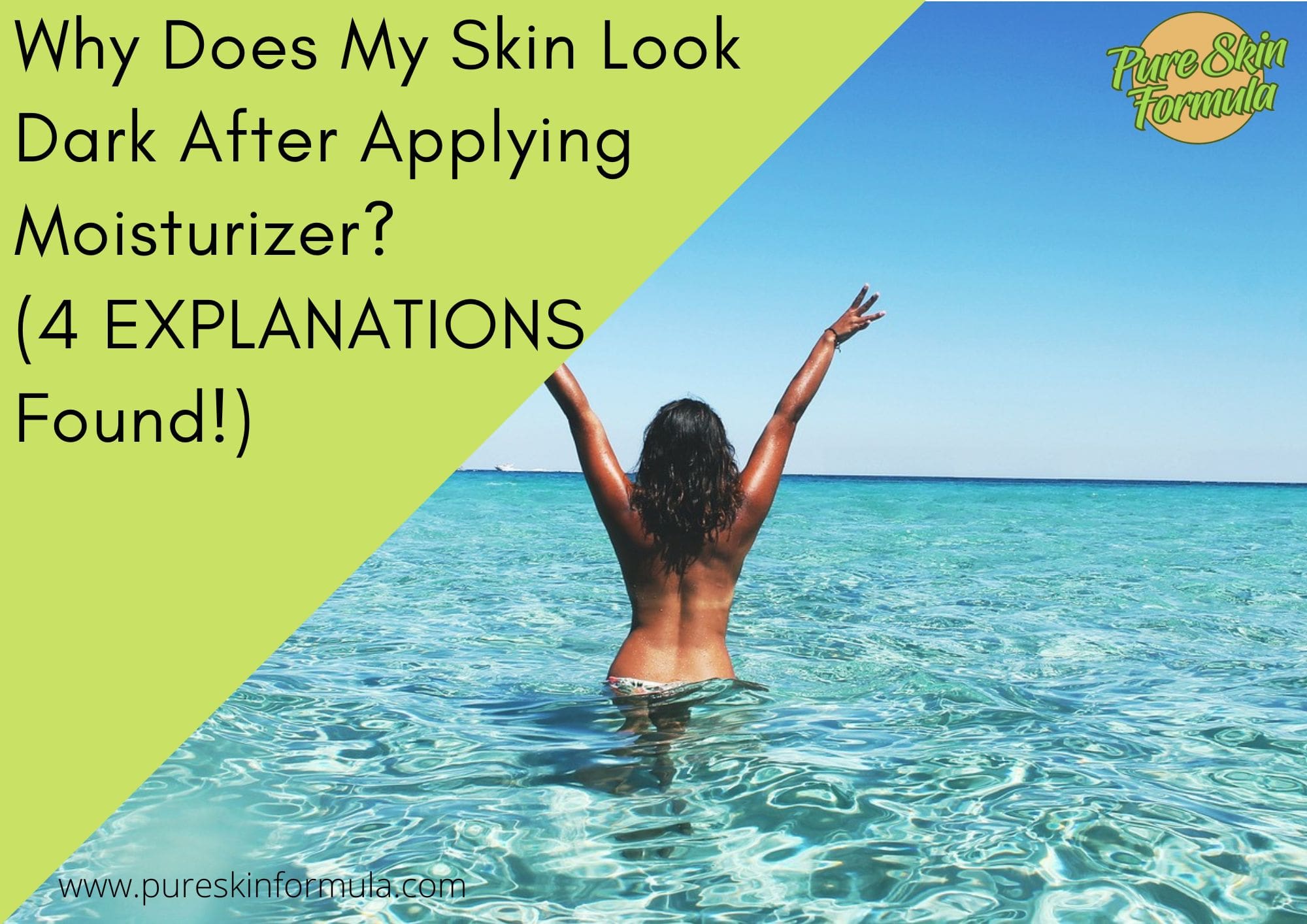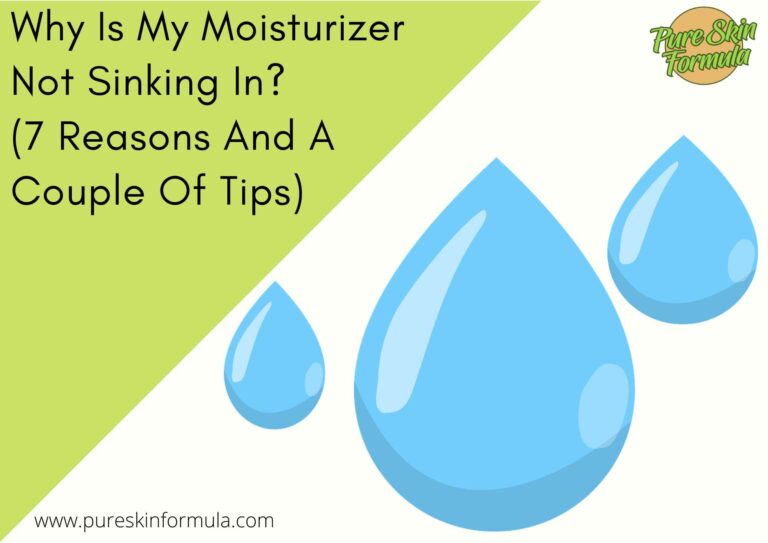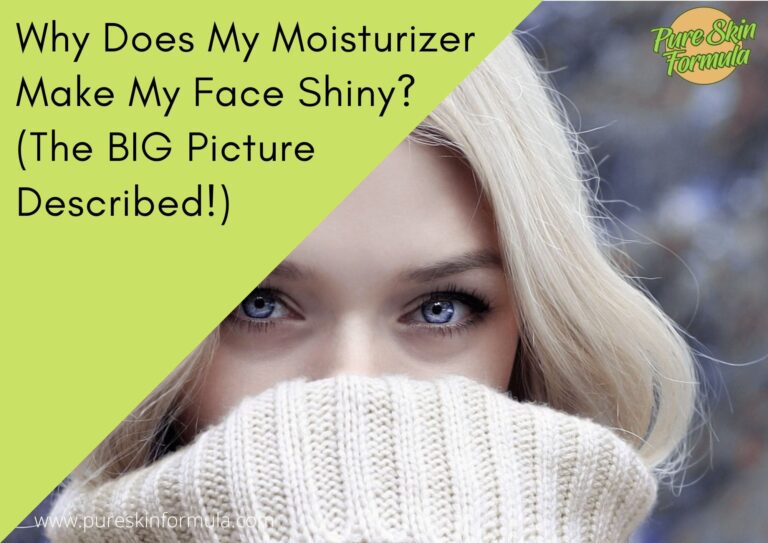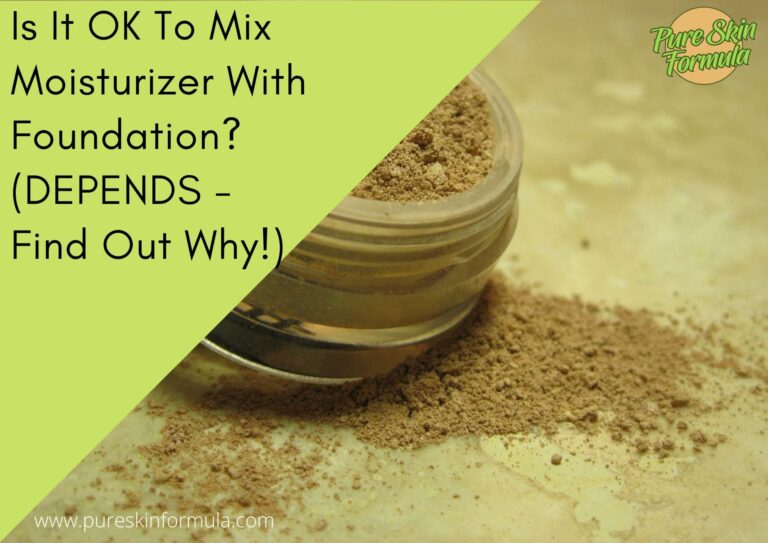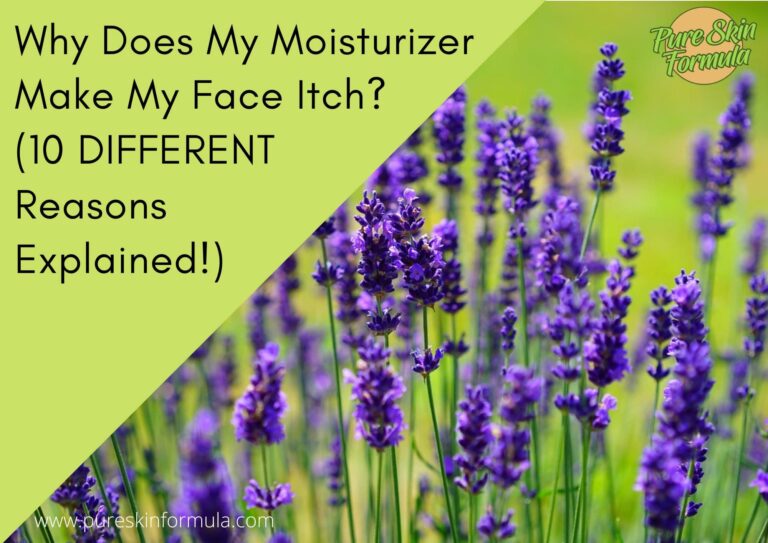The reasons for skin getting darker after applying moisturizer could be related to one (or a combination) of three factors: the skin type/treatment, the formula of the product used, or the weather/climate conditions.
Based on these three factors, I will share with you four possible explanations for this skin phenomenon.
Why does my skin look dark after applying moisturizer?
I have dry skin;
I have dehydrated skin;
I have pale skin;
I use a moisturizer that does not protect me from the sun or has photosensitizing ingredients.
Experiencing one or more of these four conditions might result in darker skin after using a moisturizer.
Let’s dissect them here.
I have dry skin
Dry skin is a condition in which the epidermis is dehydrated, lacks sufficient lipids, and its natural barrier function is impaired.
Thus, entering harmful microorganisms into the pores is much easier, and they further exacerbate the condition and cause infections.
Usually, dry skin is stretched, peeled, and easily irritated, and a lack of elasticity is observed.
It ages faster than other types and is prone to wrinkles more easily. This happens because the sebaceous glands do not secrete sufficient sebum.
Usually, when the facial skin is dry, dryness is observed all over the body.
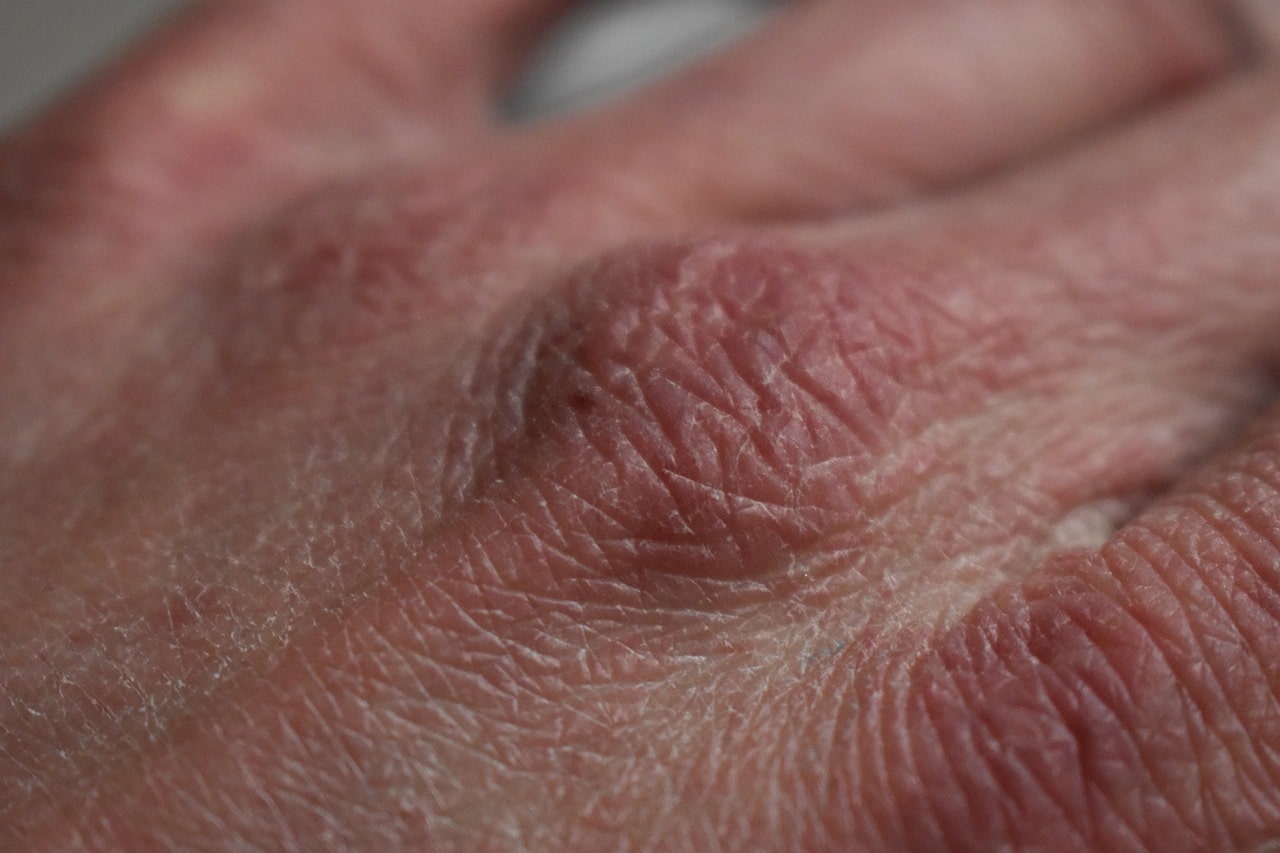
Products with low quality and artificial composition have a terrible impact on the skin.
Apart from the fact that they won’t help, they may even further irritate and dehydrate it.
Dry skin in winter
The cold and dampness outside, combined with the heat at home, can be the main culprits for making skin drier in winter.
Dry skin in summer
Using air conditioning in the summer can worsen dry skin in the same way as using it for heating in the winter, as it reduces the humidity in the air.
Therefore, if you spend long hours in an air-conditioned environment, you must use a moisturizer that provides you with a high level of hydration.
Chlorine from swimming pools and sea salt also harm dry skin unless you rinse your face with clean water immediately after bathing.
I have dehydrated skin
While dry skin is a type, dehydrated skin is a possible condition accompanying any of the five skin types – normal, dry, oily, sensitive and combination.
Often a dehydrated skin condition is perceived as dryness. In most cases, it is simply a transient condition.
While dehydrated skin lacks water, dry skin lacks oils naturally produced by the body. Oily skin can also be characterized by dehydration.
Dehydrated skin means that the body is lacking a fair amount of water and that you need to take in more fluids.
The human body contains about 55-65% water. Every cell, tissue and organ within it needs this fluid to function correctly.
Causes of dehydrated skin
Common factors that cause dehydrated skin are insufficient water, climate changes and seasonality changes, poor lifestyle habits, and using the wrong skin care products.
I have pale skin

Dehydration affects the skin’s ability to perform essential functions such as cell turnover.
Without good hydration, dead cells accumulate on the outer layer of the skin, contributing to clogged pores and a greyish skin tone.
Therefore, if your skin looks ashy, pale or greyer than usual, you most likely have hydration issues.
What causes pale skin
Lifeless and pale skin most often occurs naturally with aging, too much exposure to harmful UVA and UVB rays and poor daily skin care.
Various health conditions can cause such discolouration, such as anaemia
Exfoliation is one way of dealing with pale skin. Adding a retinoid to bedtime skin care is also an option.
Retinoids are potent ingredients that help unclog pores, reduce wrinkles, and increase cell replacement, all of which will help deal with pale skin.
I use a moisturizer that does not protect me from the sun or has photosensitizing ingredients

If your moisturizer contains sunscreen, which doesn’t efficiently protect your skin from UVA and UVB rays, this might result in getting your skin darker or burned.
Some of the products contain photosensitizing substances, which may cause skin issues when exposed to sunlight.
Such ingredients are some essential oils or fragrances. The result may be darker skin.
The bottom line
Why does my skin look dark after using moisturizer? While the answer to that question is more complex, we might go in several directions.
One of them is related to skin that is either dry, dehydrated or pale. These three conditions are similar but have their nuances, described in this text.
Another way to take is to analyze our moisturizer and its ingredients – are some photosensitizing? Do they protect me enough from the sun?
This is where the answer might appear.
Thank you for reading,
Valeria

